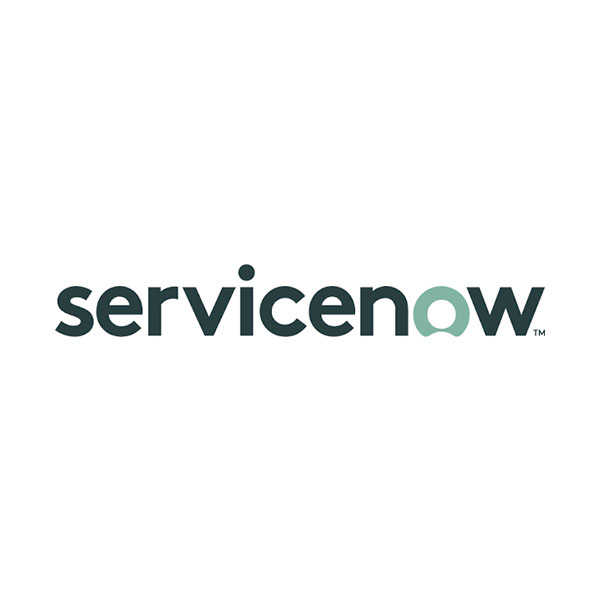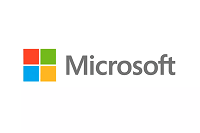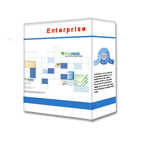What Is Knowledge Management System?
A Knowledge Management System (KMS) is a software solution that assists organizations in efficiently and effectively gathering, storing, sharing, and managing knowledge throughout their operations. It is intended to concentrate knowledge and make it easily available to employees, hence improving productivity and decision-making processes. Businesses can use a KMS to manage and leverage their collective knowledge assets, which include documentation, procedures, training materials, best practices, and expert insights.
The fundamental goal of a KMS is to capture and retain vital information and skills that would otherwise be lost as staff leave or retire. It also encourages collaboration and knowledge exchange among team members, resulting in continual learning and progress within the firm. A strong KMS can help to enhance creativity, improve decision making, and lower costs by reducing the need to reinvent the wheel or seek external expertise.
There are several different varieties of KMS, each with its own set of features and capabilities. Some focus on document or content management, while others include knowledge mapping, search, and extraction features. Some additionally provide analytics and reporting tools to monitor the use and efficacy of knowledge assets. When selecting a KMS for your firm, it is critical to analyze your specific goals and requirements.
Look for a user-friendly interface, adjustable features, and interoperability with your current system. It is also recommended to select a scalable solution that can expand with your organization. Consider the security elements of the KMS, as protecting sensitive information is critical for any firm.
What Are The Recent Trends In Knowledge Management System?
Knowledge management systems have changed greatly in recent years to meet the ever-changing needs and expectations of modern enterprises. As a result, potential buyers must have a thorough awareness of the latest trends in this category in order to make informed purchasing selections.
The following are the most recent knowledge management system trends that customers should be aware of:
1. Artificial Intelligence (AI) Integration: With the advancement of AI technology, many knowledge management systems are adopting it to improve their capabilities. AI-powered chatbots and virtual assistants are being used to deliver intelligent self-service and automate repetitive chores. This not only enhances the user experience but also lightens the load on human agents.
2. Cloud-Based Solutions: Because of their ease of use and low cost, cloud-based knowledge management systems have grown in popularity. They enable users to access information from anywhere and at any time, making it easier to collaborate and exchange expertise inside an organization. Furthermore, cloud-based solutions require little hardware and maintenance, making them a more cost-effective solution for organizations.
3. Mobile Compatibility: In today's fast-paced business environment, remote work and on-the-go access to information are critical. Thus, mobile compatibility has emerged as an important trend in knowledge management systems. Mobile apps that allow users to access and contribute to knowledge bases using their smartphones or tablets are becoming popular.
4. Data Analytics And Insights: Data analytics has emerged as a key feature in knowledge management systems, offering significant insights on user behavior, content performance, and trends. This allows firms to make data-driven decisions and continuously improve their knowledge bases in order to meet the changing needs of their customers.
5. Personalization: As information management systems get more advanced, the emphasis shifts to personalization. AI and data analytics enable systems to provide personalized experiences depending on user preferences, search history, and activity. This not only boosts customer satisfaction, but also the accuracy and usefulness of the information presented.
6. Social Collaboration: Collaboration and information sharing are critical components of successful knowledge management. As a result, many systems now contain tools like discussion forums, wikis, and social feeds to promote teamwork and facilitate the exchange of insights and ideas.
Benefits Of Using Knowledge Management System
A Knowledge Management System (KMS) is a sophisticated tool that enables enterprises to efficiently store, exchange, and use their knowledge and information. It has the potential to transform any business by streamlining operations, driving innovation, and improving decision-making. If you are in the market for a KMS, you may be wondering what unique advantages it may provide.
Here are some of the main benefits of adopting a knowledge management system:
1. Centralised Knowledge Repository: One of the most significant advantages of a KMS is the ability to store all critical information in a centralized location. This means no more disorganized documents, spreadsheets, or emails. A knowledge management system (KMS) centralizes and organizes all of your knowledge assets, including manuals, policies, procedures, and best practices. This saves time while also improving employee efficiency and collaboration.
2. Improved Knowledge Sharing: A knowledge management system (KMS) allows staff to share knowledge seamlessly, even remotely. Discussion forums, wikis, and social media-style feeds enable team members to interact, cooperate, and exchange ideas, insights, and expertise across departments and regions. This fosters a culture of continual learning and encourages people to share their knowledge and experiences, resulting in better decision-making and problem-solving.
3. Increased Productivity: By offering quick and simple access to vital information, a KMS removes the need to spend hours searching for scattered documents or calling colleagues for assistance. This saves time and allows staff to focus on more vital activities, resulting in higher overall productivity. Furthermore, a KMS lowers the possibility of duplication or errors, hence increasing efficiency.
4. Improved Customer Service: In today's competitive economy, customer service is an important difference. A KMS can help improve customer service in a variety of ways. For example, customer service workers may easily discover accurate information to respond to customer inquiries, resulting in faster resolution and improved customer satisfaction. A KMS can also provide clients with self-service options, such as access to FAQs and knowledge bases, which reduces the workload on customer care personnel.
5. Scalability & Flexibility: A successful KMS should be scalable and adaptable to the changing needs of a business. As a company grows and evolves, its knowledge management system (KMS) should be able to adapt and handle additional knowledge storage, collaboration capabilities, and integration. This means you won't have to invest in a new system each time your firm grows.
Important Factors To Consider While Purchasing Knowledge Management System?
When it comes to purchasing a knowledge management system, there are numerous key elements to consider. This is an important decision since a well chosen system may significantly increase the efficiency and efficacy of your organization's knowledge management activities.
To make an informed selection, examine the following crucial factors:
1. Organizational Needs: Before you start looking for a knowledge management system, you should first examine your organization's specific needs and goals. What are the main pain points and difficulties you want to address? What are your desired outcomes? Understanding your organization's particular requirements can help you select the appropriate system for your needs.
2. Usability: A knowledge management system should be easy to use and intuitive. This is significant since the system's adoption and utilization rely on how simple it is for employees to access and use. A difficult or cumbersome system will discourage employees from actively adopting it, making it useless.
3. Features And Functionality: When comparing different knowledge management systems, consider the features and functions they provide. Depending on your requirements, you may need features like content management, document sharing, collaboration tools, search capabilities, and analytics. It is critical to select a system with features that are compatible with your organization's specific objectives.
4. Scalability: As your firm expands, so will your knowledge management requirements. It is critical to select a system that can grow with your organization and accept future changes. This will spare you the difficulty and expense of having to move to a new system as your requirements change.
5. Integration Capabilities: It's likely that your firm already uses other tools, such as a customer relationship management system or project management software. To reduce disruption and streamline procedures, select a knowledge management system that works seamlessly with your current tools and systems.
6. Security: Since sensitive information is stored and exchanged within a knowledge management system, security is a primary consideration. Make sure to evaluate the security mechanisms in place, such as data encryption, access restriction, and scheduled backups.
7. Support And Training: To get your staff up to speed with a new knowledge management system, you will need to provide them with training and support. To ensure a smooth transfer and effective utilization, choose a system that provides complete support and training resources.
Keep these essential elements in mind while assessing knowledge management systems to ensure you make an informed decision that meets your organization's requirements. By prioritizing organizational goals, ease of use, functionality, scalability, integration capabilities, security, and support, you can choose a system that will improve your organization's knowledge management process and promote success.
What Are The Key Features To Look For In Knowledge Management System?
When selecting a Knowledge Management System for your firm, it is critical to carefully assess the main aspects that will fulfill your specific requirements and goals.
Here are the key components to look for in a knowledge management system:
1. Document Management: A Knowledge Management System's primary job is to effectively store, organize, and retrieve documents. To manage your papers effortlessly, choose a system that has customized folders, labeling, version control, and search features.
2. Collaboration Tools: A solid Knowledge Management System should help team members collaborate more effectively. Discussion forums, wikis, and real-time editing are all features that can help your organization's communication and information sharing.
3. Accessibility: Ensure that the system is easily accessible to all users, regardless of location or device. A cloud-based system or mobile app can enable convenient access to information at any time and from any location.
4. Integration Capabilities: To enhance productivity, select a Knowledge Management System that is compatible with your current applications and tools. This will enable more efficient information sharing and workflow management.
5. Knowledge Capture: The system should include elements that allow for the capture of tacit knowledge, such as staff expertise or best practices. Look for features like surveys, polls, and knowledge base building to help you capture and record vital information.
6. Security And Permissions: To protect sensitive data, use a Knowledge Management System that includes strong security features like encryption and user permissions. This ensures that only authorized users have access to confidential information.
7. Analytics And Reporting: An effective system should provide insights into how knowledge is used and shared within your firm. Look for features like reporting dashboards and analytics tools to assess the efficacy of your knowledge management initiatives.
8. User-Friendly Interface: For a Knowledge Management System to be adopted by all users, it must be easy to use. Look for a system with an easy-to-use UI and adjustable choices to meet your organization's specific needs and preferences.
9. Training And Support: When adopting a new system, training and support are critical for a seamless transition and effective utilization. Look for a vendor who provides full training and continuous assistance to guarantee that your staff can utilize the system properly.
10. Scalability: As your firm grows, your knowledge management requirements may shift. Ensure that the system is scalable, with variable pricing options and the capacity to add new users or features to meet future requirements. By carefully assessing these essential aspects, you may choose a Knowledge Management System that will efficiently organize and disseminate knowledge inside your organization, resulting in increased efficiency and decision-making.
Why Do Businesses Need Knowledge Management System?
Businesses require a knowledge management system (KMS) to efficiently manage, organize, and use the large amount of information and knowledge within their business. From staff expertise and customer data to market trends and industry insights, a KMS is intended to capture, preserve, and make this important knowledge available to the appropriate people at the right time.
One of the key reasons firms use a KMS is to improve their decision-making and problem-solving processes. By centralizing and categorizing all essential data and information, a KMS allows managers and staff to rapidly access the information they require to make informed decisions. This can lead to speedier problem resolution, more efficient resource allocation, and, ultimately, better business results.
Another significant feature of a KMS is its capacity to encourage knowledge exchange and collaboration. In today's fast-paced business climate, information is a valuable asset that must be shared and applied across departments, teams, and projects. A knowledge management system (KMS) enables employees to share their experience, ideas, and best practices with their colleagues, fostering a culture of continuous learning and innovation.
Additionally, a KMS can improve an organization's efficiency and production. Employees can spend less time seeking for information and more time focusing on their primary activities when all relevant information and knowledge is readily available. Furthermore, a KMS can automate certain activities, such as document management and workflow, freeing up employees' time for other important tasks.
Furthermore, a KMS can boost customer satisfaction by helping organizations better understand their consumers' needs, preferences, and habits. A KMS can provide useful insights by acquiring and analyzing consumer data, allowing organizations to modify their products and services to match customers' expectations, resulting in enhanced customer happiness and loyalty.
Finally, a Knowledge Management System (KMS) is essential for knowledge retention and management. As more individuals reach retirement age and leave the workforce, firms risk losing critical information and skills. A KMS can capture and retain this information, preventing it from being lost and making it available to future employees.
How Much Time Is Required To Implement Knowledge Management System?
The time required to establish a Knowledge Management System (KMS) varies according to the organization's size and complexity, as well as the individual features and customizations necessary. Implementing a KMS can take anywhere from a few weeks to several months. The first planning and preparation phase, typically takes 2-4 weeks, involves assessing the organization's needs and goals and selecting a KMS vendor.
This entails thoroughly analyzing existing systems and processes, identifying important stakeholders and their roles, and determining the scope of the KMS. The actual implementation process can take between 4 and 12 weeks, depending on the size of the company and the level of customization needed. This includes installing the KMS software, configuring it to meet the organization's requirements and processes, and integrating it with existing systems.
This step also includes setting up user accounts and permissions, as well as teaching staff how to utilize the system. After the KMS is fully deployed, a period of testing and fine-tuning is required, which can take another 2-4 weeks. This guarantees that the system runs properly and meets the organization's needs. It is crucial to note that the time necessary to properly install and adopt a KMS may also be determined by the organization's desire to accept change and engage in staff training. To create a successful and efficient knowledge management system, adequate time and resources must be allocated to its implementation.
What Is The Level Of Customization Available In Knowledge Management System?
When selecting a Knowledge Management System (KMS) for your firm, one critical thing to consider is the degree of customization offered. KMS customisation refers to the ability to modify the system's features, functionalities, and interface to meet your individual business requirements and processes. Different KMS solutions provide varying amounts of flexibility, so carefully consider your options to discover the best fit for your firm.
When evaluating the extent of customization possible in a KMS, consider the following critical points:
1. User Interface: With a configurable user interface, you can tailor the KMS's layout, colors, and branding elements to meet your company's branding. This can improve the user experience and provide a smooth interaction with your current software systems.
2. Features And Functions: Customization includes KMS features and functions. Depending on your organization's requirements, you may need certain capabilities like team communication tools, document management, or search functionality. Choose a KMS that provides flexible customization choices for these functionalities.
3. Security: The level of security customisation is critical, particularly for firms that deal with sensitive data. To ensure the security of your data, a KMS should enable granular control over user access, permissions, and encryption.
4. Integration: Being able to interface the KMS with your existing software systems is an important part of customization. This enables for the smooth flow of information and data between applications, saving your team time and effort.
5. Scalability: Your KMS requirements will most likely change as your organization expands. A highly customized KMS may scale with your organization's growth to meet your changing needs.
Which Industries Can Benefit The Most From Knowledge Management System?
Knowledge Management Systems (KMS) are gaining popularity across sectors. These systems, with their ability to efficiently store, organize, and access critical information, can considerably assist enterprises by increasing productivity, decision-making, and overall performance. While Knowledge Management Systems (KMS) can assist a wide range of enterprises, certain industries stand to benefit the most from their implementation.
We'll look at which industries can benefit most from KMS and why.
1. Healthcare: The healthcare industry is heavily data-driven, with an ongoing need to acquire and analyze massive amounts of medical data. A Knowledge Management System (KMS) can benefit healthcare companies by offering a consolidated platform for storing and managing medical records, research findings, and other vital data. This can help healthcare providers be more efficient, which leads to better patient care and outcomes.
2. IT And Technology: The IT and technology industries rely largely on information and skills to stay competitive. A KMS can aid these firms by serving as a central repository for technical information, training materials, and best practices. This can speed up the onboarding process for new employees and improve team cooperation, keeping the organization current with the latest technology and advances.
3. Education: In the education industry, information is essential for success. KMS can be used to save and organize course materials, research papers, and other educational resources. This can help teachers create successful lesson plans and allow students to conveniently access educational materials, resulting in a more efficient learning experience.
4. Banking And Finance: The banking and finance industries deal with sensitive information that must be properly organized and secured. A Knowledge Management System may ensure that information is standardized and accurate, lowering the risk of human error. It can also assist banks and financial institutions comply with rules and improve customer service by allowing them to access financial data more quickly.
5. Consulting: Consulting firms rely significantly on their knowledge and experience to give valuable insights and solutions to clients. A knowledge management system (KMS) can help these businesses by organizing knowledge and previous work experience so that it is easily accessible and reused. This can improve service quality while also strengthening client relationships.
Conclusion
To summarize, a Knowledge Management System (KMS) is a crucial tool for any organization seeking to efficiently manage and utilize the vast amount of information and knowledge at its disposal. Businesses can invest in a KMS to streamline their operations, increase productivity, improve collaboration, and ultimately drive corporate success. When considering purchasing a KMS, it is critical to first examine your organization's needs and goals. Look for a system with a simple interface, advanced search capabilities, and customizable features that match your individual needs.
Consider the system's scalability and interoperability with your existing technological infrastructure. Additionally, thoroughly assess the KMS's security features, as keeping sensitive information secure is a major issue for any firm. Choose a system that includes strong security features like access control, encryption, and regular data backups. Consider the KMS provider's support and training.
Look for a vendor who provides comprehensive training and dependable customer support to ensure the system's seamless setup and continuous use. Investing in a well-suited KMS can provide various benefits to your firm, including improved information sharing, smarter decision-making, and more efficiency. By carefully examining your options and selecting a dependable and user-friendly KMS, you can boost your organization's productivity and success.






















